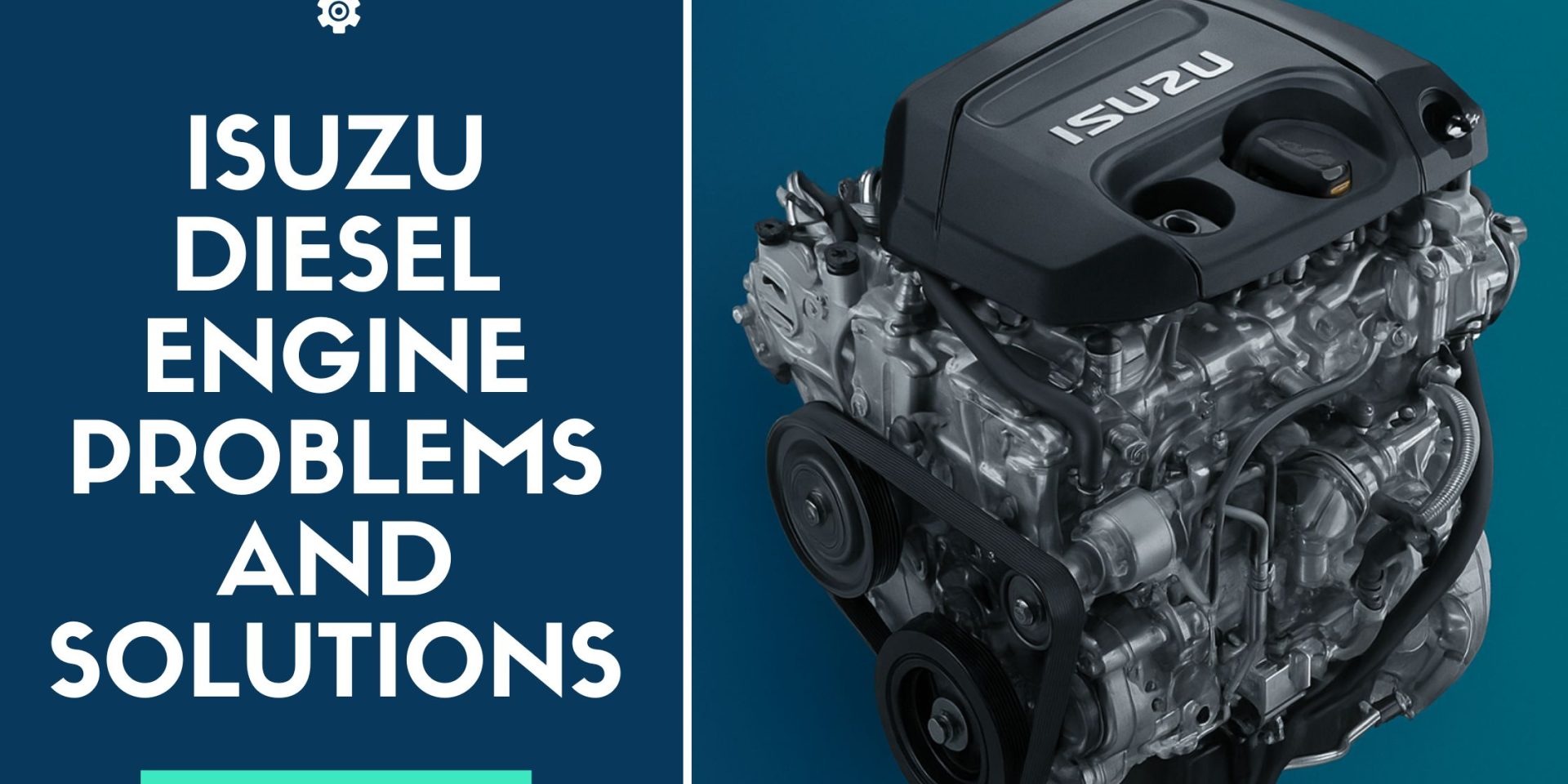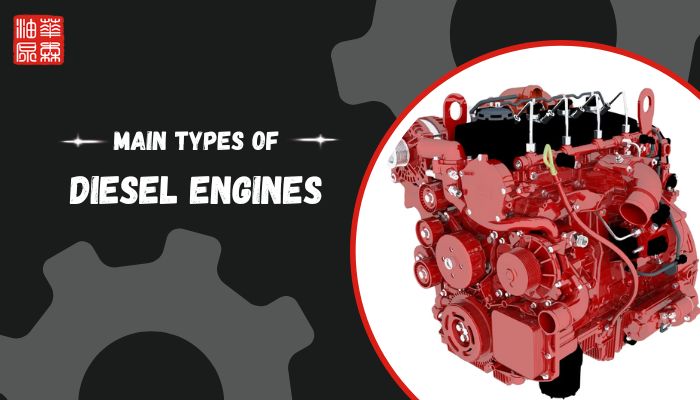Top 10 Common Isuzu Diesel Engine Problems and Solutions
Isuzu diesel engine is famous for being strong, fuel-skilled and reliable. They are used in trucks, commercial vehicles and industrial machines. But even hard engines may have problems over time.
You can help your engine work well and avoid expensive repairs, knowing general issues and how to cure them.
In this Isuzu diesel engine problems and solutions guide, you will get to know about the 10 most common problems with Isuzu diesel engines and easy solutions to fix them, and simple maintenance tips to run your engine smoothly.
Here are Top 10 Isuzu Diesel Engine Problems and Solutions :-
1. Engine Overheating
- Symptoms:
- High engine temperature
- Steam or smoke from radiator
- Coolant leak
- Causes:
- Low coolant levels
- Clogged radiator
- Faulty thermostat
- Solution:
-
- Check and refill coolant regularly
- Clean or flush the radiator
- Replace the thermostat if needed
Tip: Use quality coolant recommended for Isuzu diesel engines to prevent corrosion and keep the engine cool.
2. Hard Starting or No Start
- Symptoms:
- Slow cranking or engine won’t start
- Clicking noises
- Causes:
- Weak battery
- Faulty fuel injectors
- Worn glow plugs
- Solution:
-
- Test and replace the battery if needed
- Clean or replace fuel injectors
- Replace glow plugs
Tip: Cold weather can make starting harder, especially for engines like the Isuzu D-Max.
3. Fuel System Contamination
- Symptoms:
- Rough idling or misfires
- Low fuel efficiency
- Black smoke from exhaust
- Causes:
- Contaminated diesel
- Clogged fuel filters
- Water in the fuel tank
- Solution:
-
- Replace fuel filters regularly
- Drain and clean tank if water is present
- Use high quality diesel
Tip: Fuel additives would aid in ensuring that the injector remains clean to avoid deposition.
4. Turbocharger Problems
- Symptoms:
- Slower acceleration
- Excess exhaust smoke
- Whining or grinding noises
- Causes:
- Low or dirty oil
- Worn turbine blades
- Dirty air filters
- Solution:
-
- Follow regular oil change schedule
- Inspect and replace damaged turbo parts
- Keep air filters clean
Tip: Except when used rudely, a functioning turbo increases fuel mileage and engine lifespan.
5. Excessive Exhaust Smoke
- Symptoms:
- Black, blue, or white smoke
- Causes:
- Black: incomplete combustion
- Blue: burning oil
- White: coolant leak
- Solution:
-
- Clean or replace injectors
- Test piston rings and replace if worn
- Check head gaskets for leaks
Tip: look at the exhaust color early to avoid serious damage.
6. Injector Pump Failures
- Symptoms:
- Misfires or hesitation
- Hard starting
- Reduced power
- Causes:
- Wear over time
- Poor fuel quality
- Neglected maintenance
- Solution:
-
- Service injector pumps regularly
- Replace worn pumps with OEM parts
- Keep fuel clean and filters changed
Tip: Regular checks are important for high-mileage engines.
7. EGR Valve Issues
- Symptoms:
- Check engine light on
- Poor acceleration
- Rough idling
- Causes:
- Carbon buildup
- Faulty EGR sensors
- Solution:
-
- Clean EGR valve and passages
- Replace valve if cleaning doesn’t work
Tip: Emissions and fuel efficiency are minimized by regular maintenance on EGR.
8. Low Oil Pressure
- Symptoms:
- Oil warning light
- Engine knocking
- Poor lubrication
- Causes:
- Worn bearings
- Faulty oil pump
- Low or dirty oil
- Solution:
-
- Check oil levels and top up
- Replace oil and filters routinely
- Inspect bearings and oil pump for wear
Tip: Ignoring oil problems can cause serious engine failure.
9. Timing Belt or Chain Problems
- Symptoms:
- Engine misfires
- Rattling noises
- Engine won’t start
- Causes
- Worn or broken belt/chain
- Misaligned components
- Solution:
-
- Replace timing belts as recommended
- Observe tensioners and pulleys
Tip: Isuzu suggests replacing the time belt after 100,000 km so as not to break the engine.
10. Cooling System Leaks
- Symptoms:
- Overheating
- Coolant puddles
- Sweet smell from engine bay
- Causes:
- Damaged hoses or radiator
- Faulty water pump
- Worn gaskets
- Solution:
-
- Inspect and replace damaged hoses/radiator
- Replace bad water pumps
- Make sure the gaskets are properly sealed
Tip: The pressure helps to find the hidden leaks before the test, before they cause great damage.
Preventive maintenance tips for Isuzu diesel engine
- Change oil and filter: Use high quality diesel engine oil. Change it regularly to lubricate the parts and reduce the wear.
- Check the coolant levels: Keep the coolant up and change it when it becomes dirty or rusted to avoid corrosion.
- Observe the timing belt/chain: Replace them at intervals recommended by the manufacturer.
- Clean the EGR system: This prevents accumulation of carbon by cleaning the valve on a regular basis.
- See for exhaust smoke: Keep an eye on color changes to catch initial warning signals.
- Keep the fuel system clean: Replace the filter, use quality fuel and clean the injector to prevent clogging.
- Check the turbocharger and air filter: Make sure that there is no dirt in the air and that the turbo is functioning appropriately.
- Test battery and electrical system: Maintain battery terminals and replace the weak battery before failing.
- Checkup regular engine: A visual and performance inspection helps catch problems quickly.
- Use original parts: OEM parts better perform and ensure prolonged engine life.
Suggestions on Optimizing Performance.
Prefer a high-performance and high mileage?
- Clean injector using diesel additives to enhance combustion.
- Change air filter for every 20,000 km for optimal airflow
- Maintain the right tire pressure to reduce the load on the engine
- Clean inter-cooler and intake system from time to time
Conclusion
Isuzu diesel engines are powerful, reliable and fuel-saving, however, just as any other engine, they are prone to fail with time. The Isuzu Diesel Engine Problems are usually overheating, malfunctioning of the fuel system, turbo or injector malfunctioning and involvement of worn belts.
The positive thing is that these issues can be solve with regular check and maintenance and the use of good-quality parts and fluids. Routine repairs, like oil change and thoroughness of the fuel system, inspection of belts and evaluation of the cooling system are a long way towards ensuring that your Isuzu engine work well all the time.
By following to these solution and incorporating trustworthy alternatives such as 4tnv Engine, you are guaranteed of a reliable engine with high performance and life cycle alongside without worrying overages in many years into the future.
FAQs Related to Isuzu Diesel Engine Problems and Solutions
Q1: What do you think is the most frequent issue in an engine running on diesel?
Fuel system problems such as clogged fuel filters or dirty injectors constitute the commonest problem. This may lead to the engine running roughly, loss of power or black smoking. It is hindered by regular maintenance.
Q2: What is the life of the Isuzu diesel engines?
Frequently with due maintenance, the life of Isuzu diesel engines ranges 400,000-500,000 kilometers or more. Changing of oil frequently, use of clean fuel and service as soon as they need are the way to extend their life.
Q3: How dependable are the Isuzu diesels engines?
Isuzu diesel engines are quite dependable. They are hardy, constructed with good materials and are able to take loads and long hours without recurrent failures.



